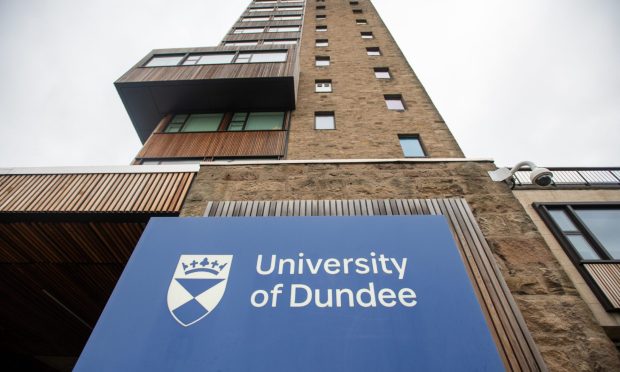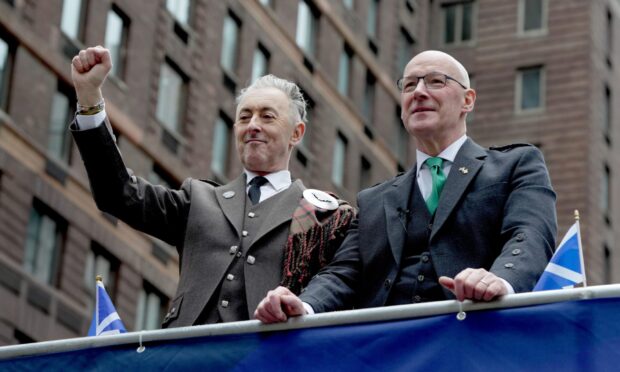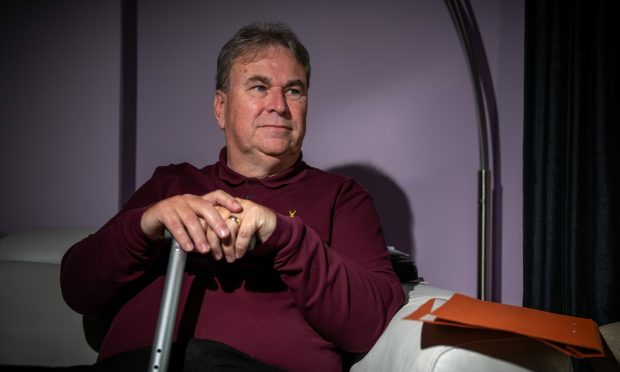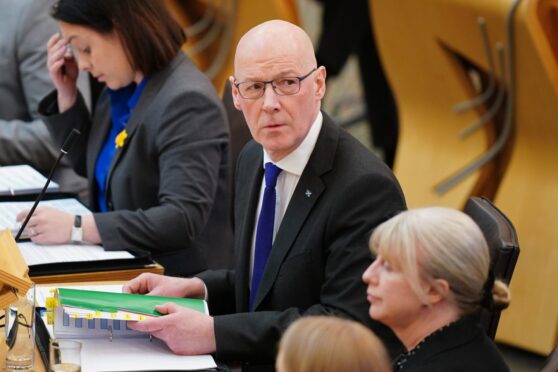Prisoners could be released early from Scottish jails if the coronavirus pandemic worsens under emergency legislation due to be passed by Holyrood on Wednesday.
The Scottish Government could soon have the power to free convicted criminals currently serving sentences if there is a “substantial” rise in the number of covid-19 cases within a jail in the country.
Prisoners serving life sentences, or jailed for the likes of sexual or terrorism offences, will not be released under the “last resort” measures.
The legislation due to go before MSPs aims to safeguard the function of the Scottish justice system during the outbreak, as well as provide greater protection for tenants from eviction.
It comes as the number of confirmed Scottish coronavirus cases surged to 1993 – an increase of 430 on Monday. Sixty Scots have now died after contracting coronavirus – a rise of 13.
In Tayside 214 people have tested positive for the disease along with 76 in Fife.
Scottish constitutional relations secretary Mike Russell told a press conference in St Andrew’s House, Edinburgh, there will be “very strong safeguards” around the power to release prisoners due to covid-19.
He added: “It would require further action from the Scottish Parliament to approve regulations for release. This is a two-stage process.
“Legislation also specifically excludes certain categories – life sentences, those convicted of sexual crimes, there are a number of those within the bill.
“(We are) not saying action is going to take place but it is creating the circumstances where it could take place if there was a substantial increase in the number of cases within the prison service. This will be kept under review.
“We will make it clear if the power is going to used before it is used. The procedure will be to put those regulations into the parliament. They have to be approved within 28 days but can come into effect.
“We are not saying this action is going to take place. It can come into effect immediately. It is a potential but it not an actuality yet.”
Mr Russell said: “The bill explicitly states that prisoners are not to be released if the prison governor believes that they would pose an immediate risk of harm to an identified person.
“It is not actually a power which can be used without regulations”.
Giving further details on the new legislation, Mr Russell added: “The emergency bill that we are publishing today is necessary because we are in an emergency.
“These measures are designed for one purpose only and that is to make sure that the government can continue to operate and its citizens can stay safe.”
He said the bill will ensure that there is “no possibility of people being evicted for not paying rent” during the crisis.
Mr Russell added: “The bill also deals with a range of issues in the criminal justice system where it is absolutely essential that we have the provisions necessary to continue the administration of justice.
“The bill tackles some comparatively small but really important issues where we have to ensure the business of government continues even if people cannot meet together to do certain things.”
First Minister Nicola Sturgeon added that she hoped the power to release prisoners is not one the Scottish Government will “have to do at all”.
“That provision is in the bill,” she said.
“I just want to stress for the assurance of people across the country that it is a power we will only use as a last resort.
“It is not something we would want to be doing but, as is the case with many of these powers, they are there as a contingency so they are there if we need them.”
Speaking more widely on the measures being introduced to tackle covid-19 across Scotland, Ms Sturgeon added: “I didn’t expect or want to be a First Minister standing here announcing some of the things I have announced. I judge all of these steps to be necessary to limit and reduce the impact of this virus.
“I can give my absolute assurance that none of these powers will remain in the statute book longer than is necessary.
All of these things, however difficult, we can repair. What we can’t do is bring people back to life.
“I don’t underestimate the damage to the economy that has been done right now. I don’t underestimate the impact of restricting people’s liberties in the way that we are doing right now.
“But all of these things, however difficult, we can repair. What we can’t do is bring people back to life.”
£1.5m support for some of Scotland’s most vulnerable during lockdown
It comes as Ms Sturgeon revealed that £1.5 million of funding is being used to aid some of the people deemed most vulnerable during the country’s coronavirus-imposed lockdown.
The money, which is being released from the Scottish Government’s £350 million fund to support those in need during the pandemic, will go towards Scottish Women’s Aid and Rape Crisis Scotland.
Ms Sturgeon said there is a “real risk that women and children already subject to abuse” could be left “isolated and vulnerable during this crisis”.
The First Minister also revealed that 6% of NHS Scotland staff are either off work after testing positive for covid-19 or are self-isolating after a member of their household displayed symptoms.
And she said that hundreds more beds have been freed up in hospitals after a reduction in delayed discharges.
Ms Sturgeon added: “Delayed discharge cases have now been reduced by more than 400. We are now aiming to reduce these numbers even further during April. People shouldn’t be in hospital any longer than they need to be.”









